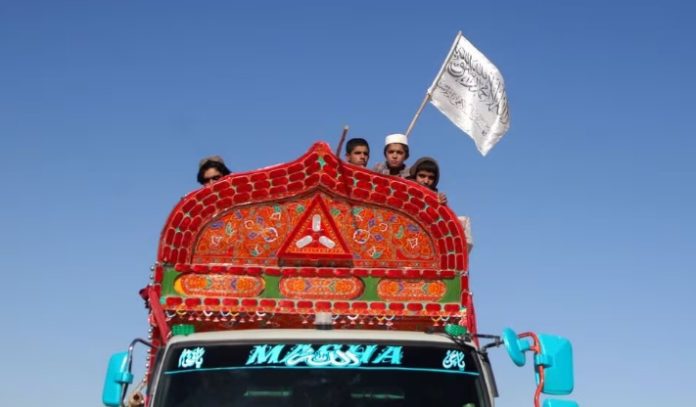Afghanistan’s acting minister of industry and commerce met with Pakistan’s interim foreign minister in Islamabad on Tuesday amid tensions between the two neighbouring countries concerning the eviction of mostly Afghan refugees.
Nuruddin Azizi visited Islamabad on Monday with a delegation to attend a meeting with representatives of Pakistan and Uzbekistan. The Pakistani Foreign Office said Azizi met with Jalil Abbas Jilani where the states discussed regional trade and communications. The Pakistan Foreign Ministry wrote on X:
“He [Jilani] reaffirmed commitment to mutually beneficial ties with Afghanistan. FM said full potential for regional trade & connectivity can be harnessed with collective action against terrorism.”
The Pakistani ministry did not comment on the details of the meeting, but the Afghan embassy said Azizi also raised issues related to the stranded goods of Afghan traders at Karachi port and Afghan refugees. The embassy commented:
“Bilateral trade, especially the stranded goods of traders in Karachi port, smooth transfer of Afghan refugees’ properties to Afghan and related issues were discussed.”
Tensions between Kabul and Islamabad have risen sharply after Pakistan sent thousands of Afghan refugees back to Kabul over the past month and launched a crackdown on illegal aliens, mostly Afghan refugees.
Last week, Pakistan’s interim Prime Minister Anwaarul Haq Kakar accused the Afghan Taliban interim administration of supporting the Tehreek-e-Taliban-e-Pakistan (TTP), which he said was using Afghan territory against Pakistan.
Later, Taliban spokesman Zabihullah Mujahid denied the allegation and said the group does not allow anyone to use Afghanistan against Pakistan. Mujahid said in a statement:
“The Islamic Emirate of Afghanistan is not responsible for maintaining peace in Pakistan, they should solve their internal problems by themselves and not blame Afghanistan for their failures.”
Last month, Pakistan set a Nov. 1 start date for the expulsion of all undocumented immigrants, including hundreds of thousands of Afghans. It cited security reasons, brushing off calls to reconsider from the United Nations, rights groups and Western embassies.
Humanitarian organisations have raised alarm at the dire conditions many Afghans who have recently returned are facing with few resources as the cold winter season begins and say many are staying in crowded shelters near the border operated by NGOs and Taliban authorities.
